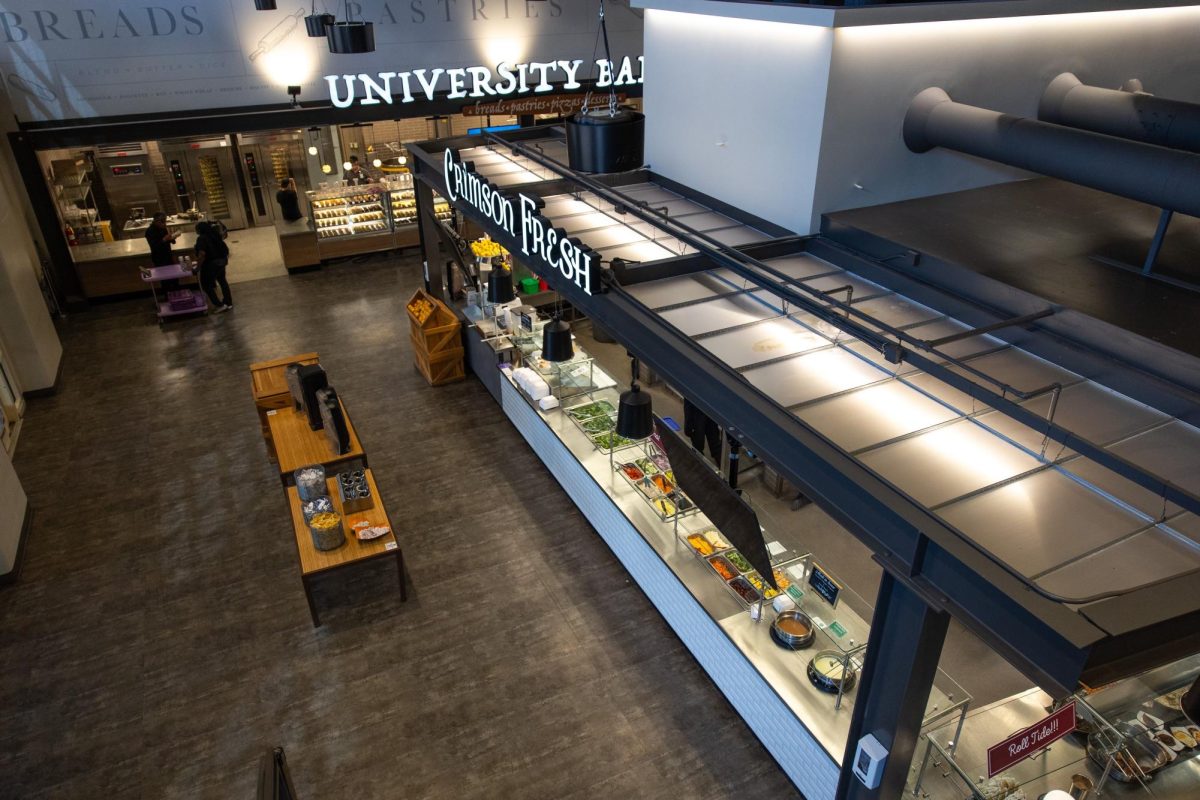Early this semester, UA accepted proposals from vendors to determine who will operate Bama Dining’s monopoly on all on-campus dining. However, before the University decides whom to grant this monopoly to, it should carefully consider whether such a monopoly is in the best interests of the students at all.
For those who don’t know, the current operator of the on-campus dining monopoly is the Aramark Corporation. If we don’t like Aramark’s food or pricing options, there is nothing we can do other than make the trek off campus or pay to have food delivered.
Also, UA requires us to purchase $300 worth of Dining Dollars per semester, which are only usable at Aramark locations and a small number of off-campus vendors. Freshmen and any other students who care to eat in the dining halls are also forced to purchase expensive bulk meal plans which are, again, only redeemable with Aramark.
Not only are students generally unhappy with the food quality in Aramark’s dining halls, but it may actually be in Aramark’s interest to keep the food quality relatively low. Students must buy dining hall meals in bulk, so they have already paid Aramark before the semester begins.
Since the dining hall food is generally boring and unappetizing, students may get tired of it and not eat on campus as much as they had planned. Fewer students eating less food means lower operating costs for Aramark, but a drop in dining hall customers isn’t likely to hurt their income, because students have already paid for the meals they aren’t eating.
I propose an end to the monopoly and the introduction of a system where multiple on-campus vendors compete for our business.
Under my proposal, different companies would operate the dining halls, food courts and convenience stores on campus. Aramark could still be one of them if they wanted to, but their competitors would get a shot, as well. This could include other campus dining specialists like Chartwells and Sodexo, who have bid on the Bama Dining contract, as well as other food vendors who want to operate locations on campus.
Since the vendors would have to compete for our business, they would have to keep quality high and prices low in order to keep up with the competition. Students would have a wide variety of choices, especially with the trustees approving two new dining halls this past November, so vendors would have to deal with a very competitive market.
Meal plans and Dining Dollars, which don’t serve any real purpose other than to increase Aramark’s profit margin, would be abolished. No longer would we be forced to pay $300 (or, in the case of freshmen, $1,650) per semester for food we might not want. All meals would be purchased with Bama Cash or U.S. dollars — whichever each individual student prefers.
While this system would largely be a free-market one, the University would still maintain some degree of control over the operations of the vendors. Dining hall vendors would be contractually obligated to keep their menus diverse enough for a variety of tastes, and all vendors would be required to keep their food in a reasonable price range and at an acceptable quality level.
By forcing food vendors to compete, the on-campus dining experience would be greatly improved. Competition-based capitalism, maligned as it has been in the past few years, is infinitely superior to monopolism because freedom of choice in consumer purchases is important. It’s time for the University to decide whether students should have freedom of choice in on-campus dining.
Bryan Anderson is a freshman majoring in aerospace engineering.








